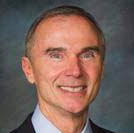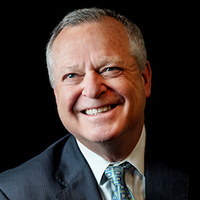Focus on thought leadership and better practices: A testament to HFMA’s vision and purpose
From its very inception, HFMA has embraced the idea of thought leadership and professional practice. The Association’s flagship publication – once Hospital Accounting, now hfm – has always been a primary source for feature articles, commentaries and other content aimed at advancing the field of healthcare finance. Although its initial focus was on hospital finance, that focus gradually expanded to encompass all of healthcare.
HFMA also has increasingly adopted a visionary approach as its thought leadership efforts have evolved and grown in both scale and intent. Many of the Association’s most ambitious initiatives have emerged over the past 20 years. The guidance and insight HFMA has issued through its various efforts have helped to inform industry efforts to define standards and policy around healthcare finance, including regulatory decisions issued by CMS.
Here is a glimpse at just a few prominent ventures that have cemented HFMA’s reputation as the industry’s leading authoritative source of insight into what constitutes exemplary healthcare financial management.a
Principles & Practices Board
One of HFMA’s first initiatives aimed at using thought leadership to advance the field of healthcare finance is the Principles & Practices (P&P) Board. HFMA established the 12-member P&P Board in 1975 to reevaluate, clarify and establish accounting principles and financial reporting practices to meet the unique characteristics of healthcare organizations. The Board works directly with the FASB, the GASB and the American Institute of Certified Public Accountants to address the financial reporting needs of healthcare organizations and improve consistency in accounting and financial reporting.

In his President’s Message in the October 1975 issue of Hospital Finance Management, Bernard C. Scott, FHFMA, wrote this prescient statement: “One of the major accomplishments of the previous administration under Arnold Silver has been the creation of a Health Care Accounting Principles & Practices Board. Activating this group is planned for this year. It is a formidable task that will require considerable effort, but the accomplishments of this group could be far reaching and most meaningful to our industry.”
The Board’s first position statement, Uniform Accounting and Uniform Reporting in Hospitals, was issued June 1977. Since then, it has published an additional 19 statements, six of which remain in effect.
In 1995, HFMA’s Board approved an expanded scope of work for the P&P Board, and it began to produce issue analyses. The first was focused on acquisition of physician practices, and 14 analyses have followed. The most recent, Current issues and considerations in accounting for leases, published June 2020, was developed by the Board “to clarify certain accounting and reporting issues resulting from the Financial Accounting Standards Board (FASB) Accounting Standards Update 2016-02, ‘Leases (Topic 842),’ and the Governmental Accounting Standards Board (GASB) Statement No. 87, ‘Leases,’ as they apply to the healthcare industry.”
Patient Friendly Billing Project

The Patient Friendly Billing Project was HFMA’s first foray into a major research initiative. The project was launched in 2007, having been envisioned by Richard L. Clarke, DHA, FHFMA, the Association’s President & CEO at the time.
In looking back over the extensive research required to complete the project and its many accomplishments, Clarke said, “Patient-friendly billing represented the beginning of thought leadership at HFMA, in my opinion. That’s when we started being more proactive in dealing with emerging industry problems. It was launched when there was a clear need for somebody to step up and do something in that space.”
Even though the P&P Board had long been in effect at the time of the project, Clarke’s words have a ring of truth, because the Patient Friendly Billing Project truly expanded HFMA’s vision beyond the purview of any pronouncement by the Board.
HFMA has summarized the project’s purpose as follows: “After conducting extensive research and focus groups among patients and healthcare providers, the consensus was clear: Patient billing is a significant problem for patients and providers. Consumers want a healthcare financial communications process that is clear, concise, correct, and patient-friendly.”
The project’s core ideas were based on the following philosophy:
- The needs of patients and family members should be paramount when designing administrative processes and communications.
- Information gathering should be coordinated with other providers and insurers, and this collection process should be done efficiently, privately and with as little duplication as possible.
- When possible, communication of financial information should not occur during the medical encounter.
- The average reader should easily understand the language and format of financial communications.
- Continuous improvement of the billing process should be made by implementing better practices and incorporating feedback from patients and consumers.
The initiative produced three major reports and it pioneered principles that have been adopted by hospitals across the nation.
HFMA’s Value Project
“Of all the transformations reshaping American health care, none is more profound than the shift toward value.” This observation by HFMA describes its motivation for a multi-year research study, called HFMA’s Value Project, which it conducted between 2011 and 2015 in collaboration with leading healthcare organizations throughout the country. The initial 40-page report, Value in Health Care: Current State and Future Directions, issued in June 2011, was followed by multiple reports of similar scope examining the transition to value from many different vantage points.
In describing the need for healthcare organizations to embrace advanced strategies to realize the principles of value-based care, HFMA wrote: “Healthcare organizations will need to respond to — or create — the inevitable disruptions to healthcare delivery that will continue to emerge in coming years. Most healthcare leaders would agree that disrupting one’s own business model is preferable to being disrupted by others.”
Consumerism

HFMA’s Value Project was initiated under Clarke’s leadership, and its focus has been expanded under the leadership of Joseph J. Fifer, FHFMA, CPA, who succeeded Clarke as HFMA’s President and CEO. As a follow up to that effort, Fifer directed that the Association turn its attention to the issue of consumerism in healthcare.
Fifer’s perspective on the need for thought leadership in this area is encapsulated in one of many his statements on the topic: “With many priorities competing for attention and resources, consumerism isn’t always on the short list of key priorities for healthcare organizations. That must change. It’s not enough to try to serve consumers; we must truly listen to them and put ourselves in their shoes when we design our business processes.”
Since 2014, HFMA’s continuing focus on consumerism has produced an array of reports and other resources under the heading of Healthcare Dollars & Sense, including:
- Price Transparency in Health Care: Report from the Price Transparency Task Force (2014)
- Patient Financial Communications Best Practices (2016)
- Maturity Model Measurement Tools for Consumerism in Healthcare (2019)
- Best Practices for Resolution of Medical Accounts (2020)
The tip of the iceberg
HFMA’s commitment to thought leadership also has extended well beyond these initiatives. It continues, for example, with the Association’s annual Thought Leadership Retreats and with its Healthcare 2020 and 2030 series.
The pursuit of all these initiatives ultimately has helped lay the foundations for an even more ambitious effort: HFMA is now turning its attention to promoting cost effectiveness of health, with the ultimate goal of helping to improve the very delivery of healthcare in the United States. Far from backing away from its vision of improving healthcare, HFMA is stepping up to help reestablish the U.S. as the exemplary world leader in healthcare delivery.
Footnote
a. To read about other thought leadership research and activities HFMA has pursued in recent years, go to hfma.org and click on “Industry Initiatives” at the top of the web page.





